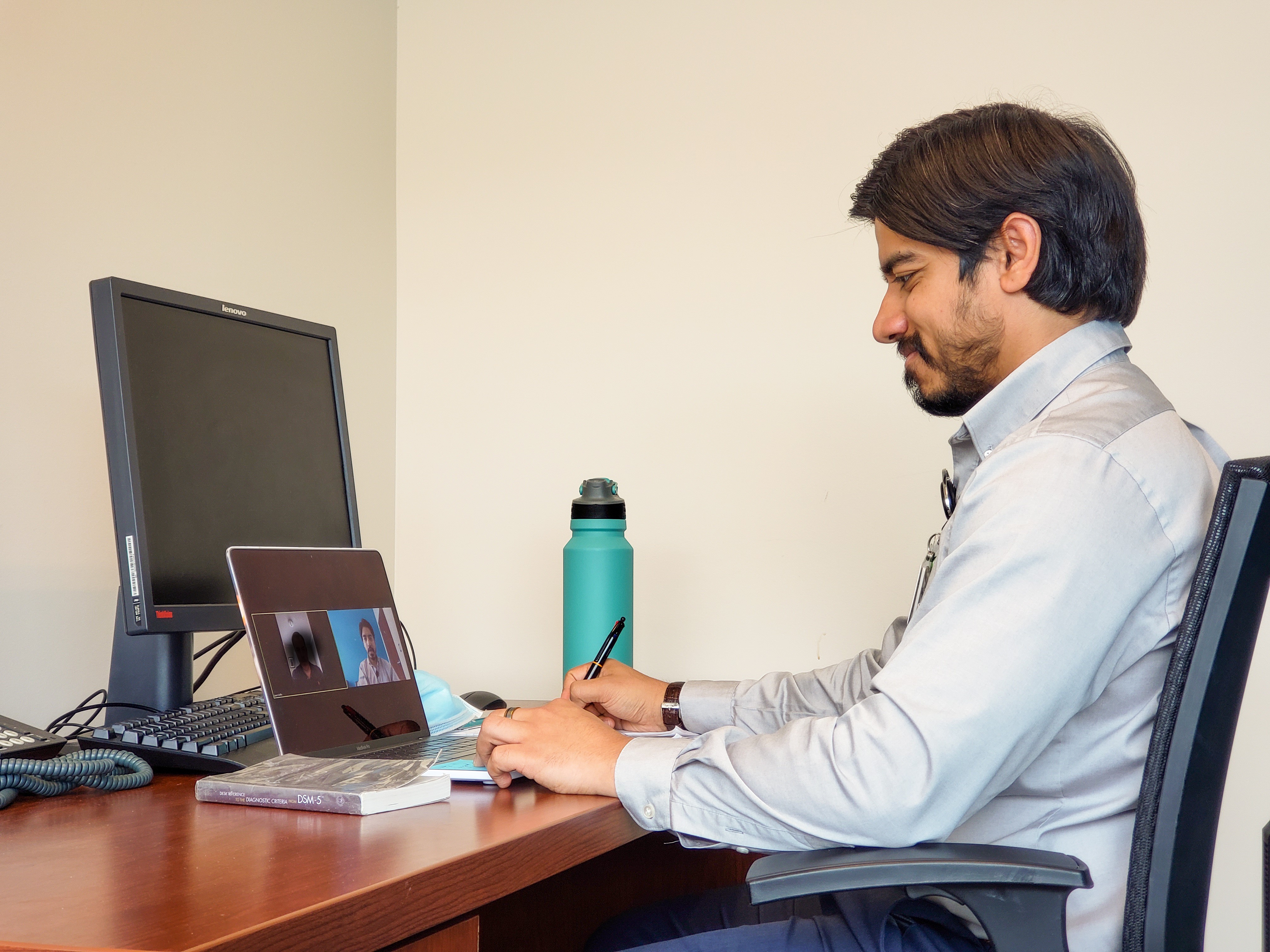Psychotherapy Training
Ann Schwartz, MD, Program Director comments on one of the strengths of our program, the early exposure to psychotherapy.

Psychotherapy training is a high priority in our residency program. The centerpiece is the Outpatient Psychotherapy Training Program (OPTP), which offers didactic instruction and experiential learning. This centrally administered program is continuous during the resident's rotations through other services. It is overseen by Andrea Crowell, MD, the educational director of the outpatient psychotherapy treatment program at the Brain Health Center. Over sixty full-time or adjunct faculty with a variety of psychotherapy backgrounds supervise residents.
After introductory lectures, residents begin their supervised psychotherapeutic work in the PGY-2 year and continue throughout the remainder of the residency. There are a wide variety of patients seen in the outpatient program from a range of sociodemographic backgrounds who present with a broad spectrum of diagnostic disorders and clinical presentations Patients are referred from many areas of the community including Emory faculty/staff, student health, and student counseling services, self-referrals, and referrals from other mental health professionals. Required time commitment at the OPTP is 4 hours per week for PGY-2s and 12 hours per week for PGY-3s/ PGY-4s. PGY-2 residents see at least 2 psychotherapy patients and receive supervision with an onsite faculty member and the chief resident. PGY-3 and 4 residents have 6 hours dedicated to direct patient care that may include intakes and psychotherapy (individual, group, and couple/family). They also have a minimum of 2-3 hours of supervision provided on or off campus and participate in case conferences and didactic seminars for dynamic and cognitive behavioral therapy.
Each resident is expected to learn and practice a variety of therapeutic modalities and approaches. Therapeutic modalities include individual, group, and couple/family therapy and adjunctive psychopharmacological therapy. Therapeutic approaches include but are not limited to: brief and long-term psychodynamic psychotherapy, cognitive behavioral therapy including third wave approaches, supportive psychotherapy, and therapy guided by integrative approaches. An enhanced focus on evidence-based treatment approaches may involve the resident’s participation in psychotherapy research projects conducted in the OPTP.
Since the 1960's the Emory University Psychoanalytic Institute has been instrumental in the psychotherapy education and supervision of residents. Today, many psychotherapy track residents seek supervision with renowned psychoanalysts. For those who want to deepen their psychoanalytic knowledge and experience, the EUPI's programs are accessible to residents. Residents can enroll formally or participate in periodic Institute-sponsored activities.
A Chief Residency in the Outpatient Services is offered as an elective in the PGY-4 year. The Chief Resident’s work is divided between the OPTP and the Emory Psychopharmacology Clinic. There is also a psychotherapy track offered that begins in the PGY-3 year for those residents interested in advanced training in psychotherapy methods and research.
Psychotherapy Case Conference
Nadine Kaslow, PhD, Chief Psychologist at Grady, comments on the psychotherapy case conference which provides a unique experience for faculty and residents to share different perspectives on cases.

